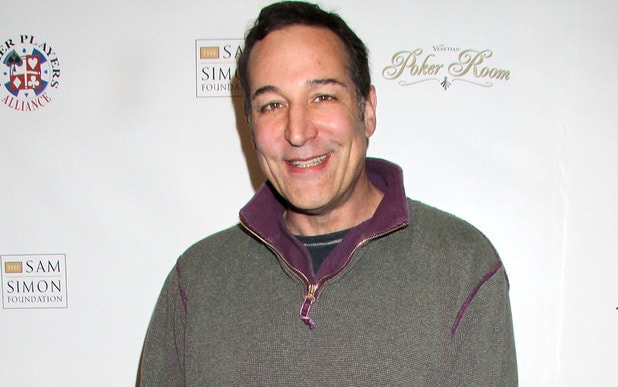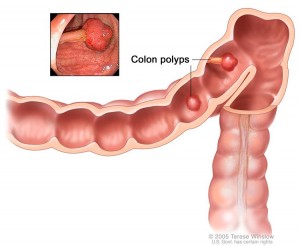Sam Simon, Simpsons Co-Creator, Giving Away His Fortune

Sam Simon knows how to make people smile.
As co-creator of The Simpsons, with Matt Groening and James L. Brooks, as well as a comedy writer and director for shows such as Taxi, The Gary Shandling Show, Cheers, and the Drew Carey Show, Simon has been making people laugh for years.
So it shouldn’t come as that much of a surprise that when Simon, 58, was diagnosed with terminal colon cancer, that he decided to donate a large portion of his fortune to charities that feed the hunger and support animal rights, telling the Hollywood Reporter:
I get pleasure from it. I love it.
Simon was diagnosed with colon cancer at the end of 2012. He told WFT host Marc Maron that he had been ill for a long time and had been initially misdiagnosed as having a “viral illness.” When the diagnosis was made Simon had widespread involvement of the cancer- to his liver, kidney, connective tissue and lymphatic system as well as in the colon. When he insisted the doctor give him an idea of how long he might have to live, he was given 3-6 months.
Simon has undergone extensive chemotherapy and has been told that his tumors are getting smaller. He also freely admits to using medical marijuana to “decrease anxiety and nausea” and even to going to a homeopathic physician who he describes as the “Quack to the Stars.”
Sam Simon has been a philanthropist for a number of years, founding the Malibu-based Sam Simon Foundation which feeds hungry people (vegan foods only) and dogs. He also supports PETA (which named their Norfolk, VA headquarters after him, Save the Children, and the Sea Shepherd Conservation Society (featured on the Animal Planet show Whale Wars). He donated money to buy a boat for them (the M/Y Simon) in 2012 to stop whaling and illegal fishing.
The Colon:
 The colon is part of the digestive system. It forms a long, muscular tube called the large intestine (also called the large bowel). The colon is the first 4 to 5 feet of the large intestine, with the rectum at the last several inches.
The colon is part of the digestive system. It forms a long, muscular tube called the large intestine (also called the large bowel). The colon is the first 4 to 5 feet of the large intestine, with the rectum at the last several inches.
Partly digested food enters the colon from the small intestine. The colon removes water and nutrients from the food and turns the rest into waste (stool). The waste passes from the colon into the rectum and then out of the body through the anus.
Colon Cancer
Almost all colon cancer starts in glands in the lining of the colon and rectum. Nearly all colon cancers begin as noncancerous (benign) polyps, which slowly develop into cancer. This is why screening for colon cancer with colonoscopy is so effective.
A polyp is an abnormal growth of tissue projecting from a mucous membrane. If it is attached to the surface by a narrow elongated stalk it is said to be pedunculated. If no stalk is present it is said to be sessile.
Risk factors for colon cancer:
- Age over 50
- African American and eastern European descent
- Diet:
- High in red or processed meat
- high fat
- low fiber
- Cancer elsewhere in the body
- Presence of polyps in the colon or rectum
- Inflammatory bowel disease (Crohn’s disease or ulcerative colitis)
- Family history of colon cancer
- Personal history of breast cancer
- Certain genetic syndromes:
- Hereditary nonpolyposis colorectal cancer(HNPCC)
- Familial adenomatous polyposis (FAP).
- Smoking cigarettes and drinking alcohol
Symptoms:
A common symptom of colorectal cancer is a change in bowel habits. Symptoms include:
- Having diarrhea or constipation
- Feeling that your bowel does not empty completely
- Finding blood (either bright red or very dark) in your stool
- Finding your stools are narrower than usual
- Frequently having gas pains or cramps, or feeling full or bloated
- Losing weight with no known reason
- Feeling very tired all the time
- Having nausea or vomiting
Most often, these symptoms are not due to cancer. Other health problems can cause the same symptoms. Anyone with these symptoms should see a doctor to be diagnosed and treated as early as possible.
Usually, early cancer does not cause pain. It is important not to wait to feel pain before seeing a doctor.
For more information, click here to go to the Resounding Health Casebook on the topic.




























0 comments